Analyzing JEE Advanced : Identifying Consistent Patterns Over the Years

SHARING IS CARING
If our Website helped you a little, then kindly spread our voice using Social Networks. Spread our word to your readers, friends, teachers, students & all those close ones who deserve to know what you know now.
Hello, everyone! With JEE Advanced approaching, it's time for some analysis. Last year, our analysis of the JEE Mains offline paper received great interest and feedback. This year, we've improved our approach to analyzing the JEE Mains paper, and now we're diving deeper into JEE Advanced.
Understanding Paper Analysis: First, let's delve into how the exam paper has been changing over the years and how this insight can enhance test preparation.
At Selfstudys, we've constructed a comprehensive knowledge tree comprising nearly 12,000 concepts from the JEE and NEET syllabi. This knowledge structure illustrates the interconnectedness of learning across subjects and years. Recognizing the flow of knowledge can significantly aid in overcoming learning hurdles. In the visualization below, each dot represents a concept in our knowledge tree, with colors indicating the average accuracy for each concept based on practice and tests conducted on Selfstudys.com.
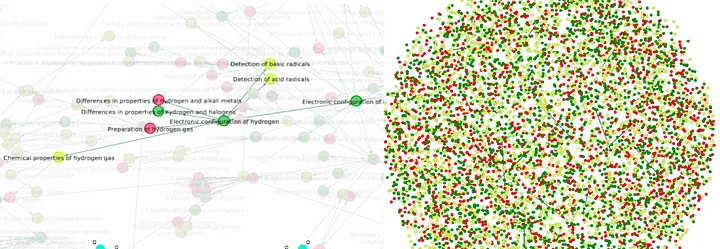
Thanks to our extensive knowledge tree, which includes tags for ideal time, difficulty, and more, we can conduct in-depth analyses to identify which concepts appear in each question or paper. When examining the papers through this lens, we've made some remarkable insights. Here's what we found for every year, spanning from JEE 2013 to 2016. It's quite remarkable—some of these insights are mind-blowing.
Concepts Present Every Year in JEE Advanced Paper:
- All papers drew from a pool of 1005 concepts.
- This means that approximately 11% of the concepts are consistently deemed important.
- Below is an intriguing table showcasing the concept build-out each year:

It appears that there's a decreasing trend in the number of new concepts added each year. Could this suggest that we're saturating the concepts in every test?
The following chart illustrates the repetition of concepts across different years. This indicates how many concepts are repeated or shared between tests over the years.
To read the table below, match the column in red with the first row in red to see the overlap. For example, the first row indicates that JEE Advanced 2013 — Paper A had 32 concepts in common with JEE Advanced 2014 — Paper A and 16 concepts in common with JEE Advanced 2014 — Paper B.

It seems that there isn't a single concept that recurs in exactly the same way every year.
What chapters have come every year in the JEE Advanced paper?
However, there are two chapters that have consistently appeared every year in the JEE Advanced paper. Both of these chapters belong to Physics:
- Electrostatics
- Ray Optics
Here's a table illustrating the commonality across chapters for all exams. Match the column in red with the first row in red to see the overlap:

Is there a difference in difficulty levels across the years in JEE papers? We evaluate questions on a scale of 1 to 10.
Over the years, the difficulty level of the JEE paper has varied, ranging from 5.03 to 5.9. On average, the difficulty level stands at 5.51.
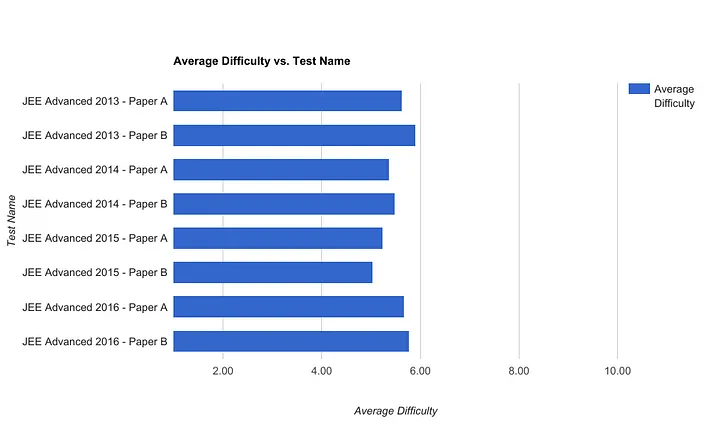
What's the recommended time distribution for each section of the JEE paper?
It's fascinating to note that the suggested time allocation for the paper typically allows for about 10 minutes of revision if you're well-prepared. When we break down the time needed for Physics, Chemistry, and Maths section-wise across different years, here's what it looks like.
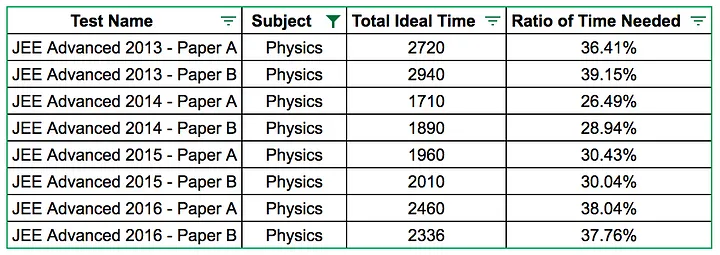
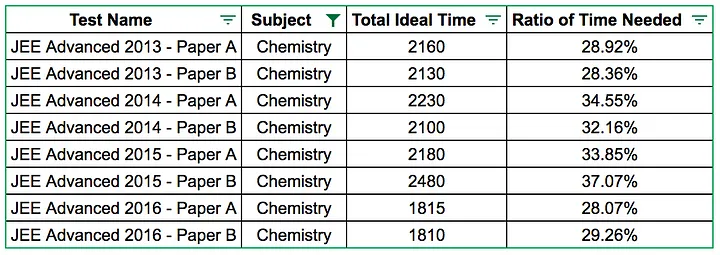
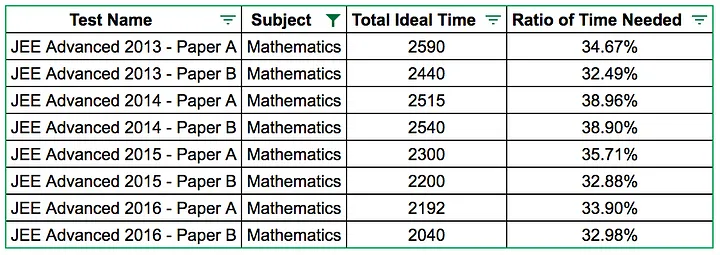
Noticeably, Physics and Maths alternate as the 'lengthy section' over different years.
Are particular skills more crucial for the JEE Advanced?
Here's an interesting finding:
While memory is undoubtedly crucial as a foundation, analytical ability, calculation, and visualization collectively contribute to nearly 46% of the questions asked.
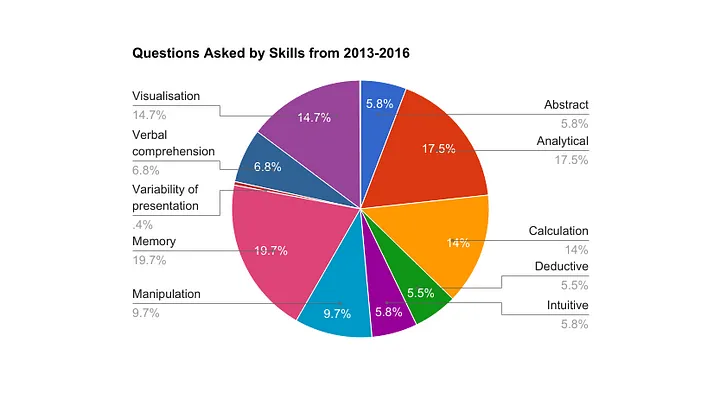
Here's an example of a question that tests visualization skills—solving it requires being able to mentally picture the scenario. Abstract questions often deal with concepts that aren't easily linked to concrete ideas, such as moment of inertia or angular velocity.
Read Also -
JEE Advanced 2024 : AITS Free Mock Test Paper with Solution; Download PDF
JEE Advanced 2024 : Organic Chemistry Important Practice Papers; Download PDF
JEE Advanced 2024 Booster Test Series; Download PDF & Solution
--







 Profile
Profile Signout
Signout










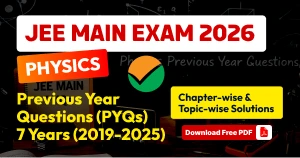

 Quiz
Quiz
 Get latest Exam Updates
Get latest Exam Updates 










